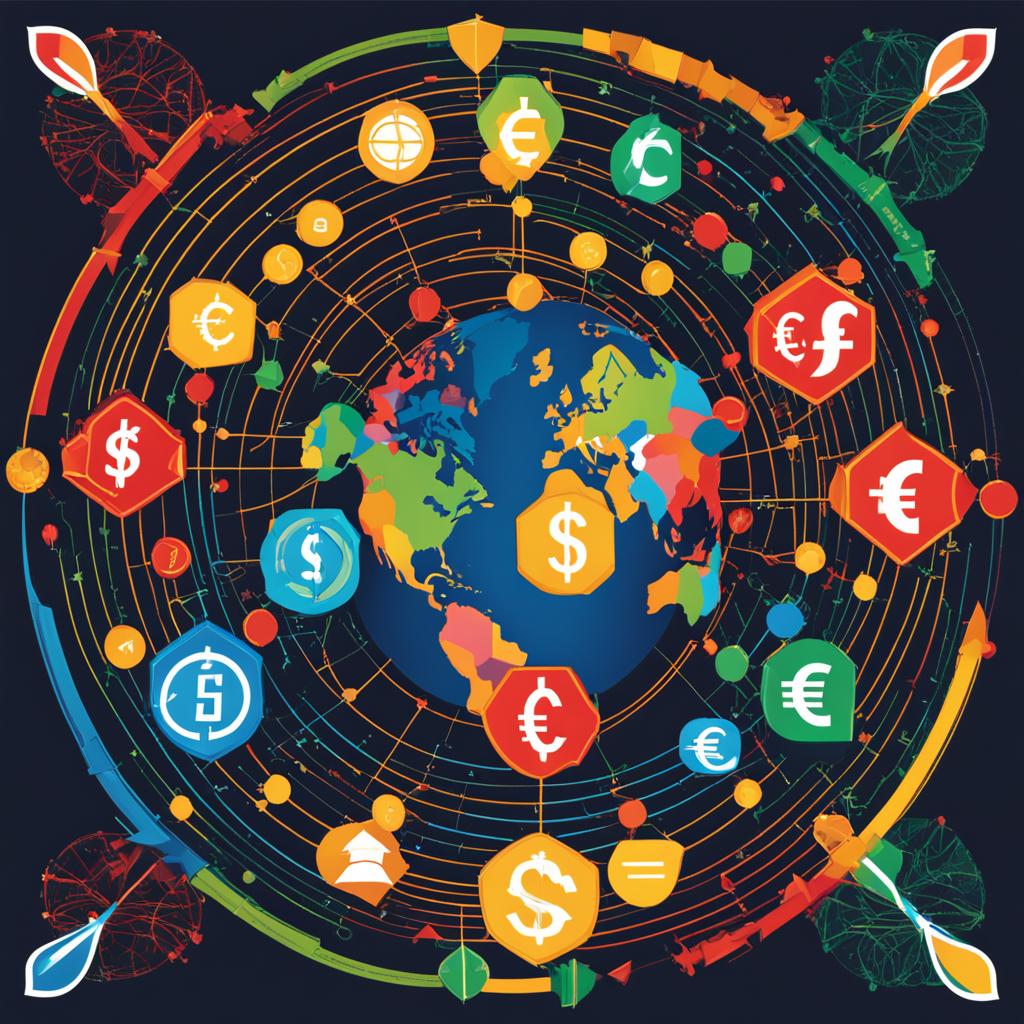Greetings, dear readers! Today, we want to talk about a subject that affects us all: global economic governance. At its core, this is about ensuring economic stability and growth around the world. By working together, we can create a solid framework that will benefit us all, from the smallest village to the largest metropolis.
Global economic governance is a concept that may seem foreign to some, but it is vital to our daily lives. It pertains to the policies, institutions, and agreements that govern the international economic system. It is concerned with the regulation of financial flows, trade, and investment between nations. By ensuring that these flows are stable and predictable, we can all prosper.
Why is this important? Well, let’s take a moment to consider the alternative. Without effective global economic governance, we risk instability, volatility, and crises. This can have devastating effects on economies, businesses, and individuals around the world. We have seen this in action in the past, and it is not a future we want to face.
That is why we need to prioritize effective global economic governance. By doing so, we can create a stable, predictable, and sustainable economic future for all. In the following sections, we will explore this concept in more detail, examining its implications and strategies for strengthening it.
So, let’s work together to ensure a stable and prosperous future. Join us as we delve into the world of global economic governance!
Understanding Global Economic Governance
When we think of the global economy, we often think of a vast and complex network of markets, currencies, and financial institutions. However, behind this network lies a system of governance that establishes rules, regulations, and standards for the conduct of economic activity. This system is known as global economic governance.
At its core, global economic governance is a framework for promoting stability, growth, and prosperity in the global economy. It encompasses a variety of institutions, both public and private, that work together to establish policies, coordinate actions, and regulate economic activity.
The Key Players
Some of the key players in global economic governance include:
- The International Monetary Fund (IMF)
- The World Bank
- The World Trade Organization (WTO)
- The G20 group of nations
Each of these institutions plays a critical role in shaping the global economic landscape. For example, the IMF works to promote international monetary cooperation, facilitate international trade, and promote economic growth and stability. Similarly, the World Bank provides financial and technical assistance to developing countries, while the WTO oversees the rules of trade between nations.
The Implications
Global economic governance has far-reaching implications for individuals, businesses, and governments around the world. By establishing clear rules and standards for economic activity, global economic governance helps to create a level playing field for all participants in the global economy.
Moreover, global economic governance helps to promote stability and predictability in the global economy. By coordinating economic policies and actions, and by establishing institutions to regulate economic activity, global economic governance helps to reduce the risk of economic crises and promote sustainable growth.
At the same time, global economic governance can also be a source of tension and conflict. Different nations may have different priorities and interests, and disagreements over economic policies can lead to trade disputes, currency wars, and other forms of economic conflict.
“Global economic governance is a framework for promoting stability, growth, and prosperity in the global economy.”
Despite these challenges, however, global economic governance remains a critical tool for ensuring the stability and growth of the global economy. By facilitating cooperation and coordination among nations, and by promoting fair and sustainable economic policies, global economic governance can help us to build a more prosperous and resilient global economy for all.
Strengthening Global Economic Governance
Effective global economic governance is central to ensuring the stability and growth of the global economy. By working together, nations can develop strategies that promote resilience and manage risks more effectively. In this section, we will explore various ways to strengthen global economic governance.
Collaboration among nations
The need for collaboration among nations cannot be overstated. Countries must work together to promote inclusive and sustainable growth, reduce income inequality, and facilitate international trade and investment. Collaboration helps to ensure that the benefits of economic growth are distributed fairly, and that no one is left behind in the pursuit of economic progress.
One way to facilitate collaboration is through international institutions such as the International Monetary Fund (IMF) and the World Bank. These institutions provide a platform for nations to work together to promote financial stability and address economic imbalances.

Regulatory frameworks
Regulatory frameworks are critical for promoting economic stability and ensuring that markets are functioning effectively. A well-designed regulatory framework can help to mitigate risks, protect consumers, and promote fair competition in the marketplace.
One example of effective regulation is the Basel Committee on Banking Supervision, which develops and promotes global regulatory standards for banks. These standards help to ensure that banks maintain sufficient levels of capital and manage risks effectively, thus promoting financial stability.
The role of multilateral organizations
Multilateral organizations play a critical role in promoting economic stability and resilience. Organizations such as the IMF and the World Bank provide financial assistance and technical expertise to countries in need, and help to coordinate global economic policy.
Another important multilateral organization is the Group of Twenty (G20), which brings together the world’s major economies to discuss and coordinate on global economic issues. The G20 has played a key role in responding to the COVID-19 pandemic, coordinating on issues such as debt relief and vaccine distribution.
In conclusion
Effective global economic governance is essential for promoting stability and resilience in the global economy. By working together, nations can develop strategies that promote inclusive and sustainable growth, manage risks more effectively, and ensure that the benefits of economic progress are distributed fairly.
Collaboration among nations, regulatory frameworks, and multilateral organizations all play important roles in strengthening global economic governance. By prioritizing effective governance structures, we can build a prosperous and resilient global economy for generations to come.
Conclusion
Global economic governance plays a critical role in maintaining financial stability and promoting growth. As we have explored in this article, effective governance structures are necessary for ensuring resilience and sustainability in our global economy.
By prioritizing collaboration among nations, regulatory frameworks, and the role of multilateral organizations, we can strengthen global economic governance and build a prosperous future for us all.
Together, we must continue to prioritize the importance of global economic governance and work towards creating a resilient and stable economy that benefits everyone. Let us shape our economic future and ensure stability for all.




